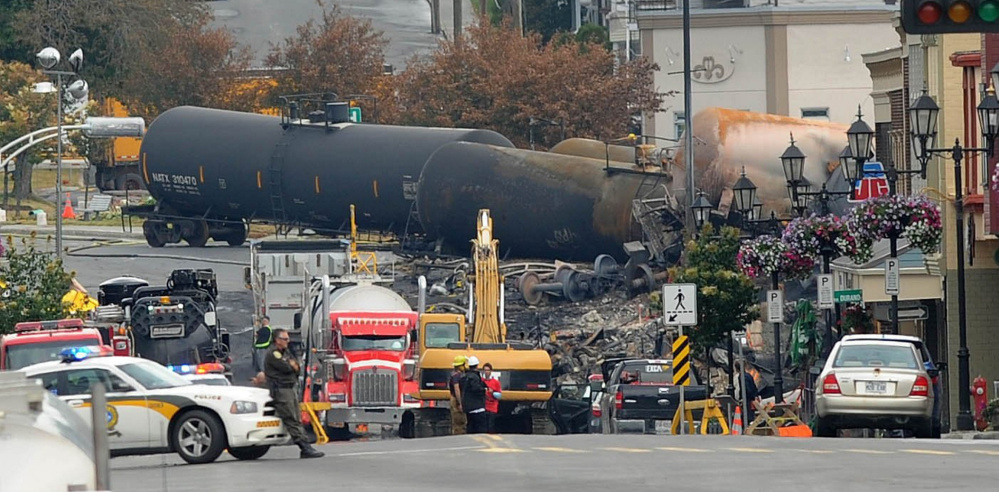WASHINGTON — Railroads hauling crude oil would be required to develop comprehensive plans for dealing with a significant oil spill, including providing detailed information to state and tribal authorities, under a rule proposed Wednesday by the Department of Transportation.
The proposal also includes a new testing method for shippers to determine the volatility of oil shipments.
Oil is often transported in trains with as many as 100 tank cars at a time. At least 27 oil trains have derailed in the U.S. and Canada in the last decade, often leading to fiery explosions and extensive environmental damage. Local authorities have complained in the past that they’ve been unable to obtain information or there have been delays in obtaining information from railroads.
Last month, a Union Pacific Railroad oil train derailed in the scenic Columbia River Gorge along the Oregon-Washington border. The derailment released 42,000 gallons of crude oil and sparked a massive fire that burned for 14 hours.
The proposed rule would “hold industry accountable to plan and prepare for the worst-case scenario,” Transportation Secretary Anthony Foxx said.
The Association of American Railroads said in a statement that it is reviewing the 217-page proposal, and that railroads already have response plans in place.
The rule would require railroads to position teams that can respond with equipment and manpower within 12 hours to an oil train derailment. But the department also asks for industry and public comments on whether a maximum 6 hours to respond would be more appropriate in areas where there is high volume of oil train traffic or that are environmentally sensitive.
Rep. Peter DeFazio, D-Ore., praised the proposal, saying it would “ensure that personnel are trained and available, that equipment is in place to respond to a spill, and that procedures are established before a spill occurs.” He said he will urge the department to include ethanol shipments in addition to crude oil in the proposal.
Like crude oil, ethanol is also sometimes shipped in trains with large numbers of tank cars that, if derailed, can spill their contents and ignite fierce fires that spread to other cars.
Send questions/comments to the editors.



Success. Please wait for the page to reload. If the page does not reload within 5 seconds, please refresh the page.
Enter your email and password to access comments.
Hi, to comment on stories you must . This profile is in addition to your subscription and website login.
Already have a commenting profile? .
Invalid username/password.
Please check your email to confirm and complete your registration.
Only subscribers are eligible to post comments. Please subscribe or login first for digital access. Here’s why.
Use the form below to reset your password. When you've submitted your account email, we will send an email with a reset code.